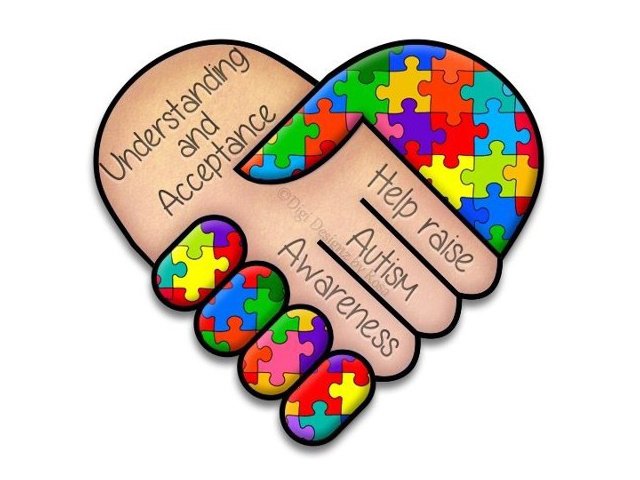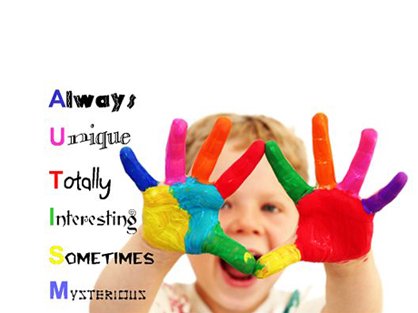What's Included
Online Autism Awareness Diploma Course
Course Syllabus:
Module 1: What is Autism?
- Asperger’s Syndrome
- Gender Differences
- Early Intervention
- Age at Diagnosis
- A “Spectrum” Disorder
- Likelihood of Intellectual Impairment in Autism
- Disabilities which increase Autism RIsk
- Co-morbidities
- The Triad of Impairments
- Increasing Prevalence of Autism
- History of Autism
- The apparent Autism Epidemic
- Autism and Vaccinations
- Autism Parents
Module 2: Getting Started
- The Triad of Impairment
- Communication
- Interaction
- Imagination
- Communication Impairments
- Common Receptive Speech Difficulties
- Common Expressive Speech Difficulties
- Tone of Voice and Vocal Modulation
- Non-Spoken Communication
- People with ASD can be sociable
- Social Interaction Impairments, such as
- Impairment of Imagination
- Autism and Emotions
- Social skills, isolation and bullying
- Adults with Autism
- Neurodiversity
- “Different, not Less”
- High-Achievers with Autism
- Autism – A disorder, a difference, a condition or a disability?
Module 3: Autism Symptoms
- Sensory Issues
- Processing information from our senses
- Sensory Overload
- Filtering
- Sensory Avoiders
- Sensory Seekers
- Signs of Sensory Avoidance
- Signs of sensory seekers
- Sensory issues often judged as poor behaviour
- Food Issues – Sensory Avoiders
- Food Issues – Sensory Seekers
- Repetitive Behaviours and Obsessions
- Obsessions or intense interests
- Anxieties
- Routines and rituals
- Meltdowns, Anger and Aggression
- Meltdowns and tantrums – are they the same?
- Meltdown Triggers
- Difference between Tantrums and Meltdowns
- Tantrums
- Why they happen
- What they look like
- Tantrums as Power Struggle
- Retention of Self-Control
- The Purpose of a Tantrum
- Retention of Self-Awareness
- Tantrums – a natural part of growing up
- Meltdowns – anger and aggression
- Absence of Self-Control and Self-Awareness
- Triggers
- Theory of Mind
- Sensory Triggers
- Medical Cause
- The Frightening Intensity of Meltdowns
- Characteristics of a Meltdown
- Meltdown Calming Strategies
- Meltdown Prevention
- Impact of Meltdowns on the rest of the Family
- Why conventional Parenting Strategies and Sanctions don’t work
- Behaviour as Communication
- Social Stigma
Module 4: Diagnosing Autism
- Age of Diagnosis
- Pre-School Developmental Screening
- GP Referral
- Diagnosis in School Age Children
- National Plan for Autism in Children
- The Diagnostic Assessment Process
- Diagnostic Report
- Second Opinions
- Private Assessments
- Diagnosis Procedures for Adults
Module 5: Gender Differences in Autism
- Autism Boy to Girl Ratio
- Higher proportion of Autistic Girls with Severe Learning Disabilities. Why?
- Female friendship patterns in primary school
- Repetitive behaviours
- Disruptive behaviours
- More Common Female Behaviourial Symptoms
- Male-centric bias of diagnostic tools
- ASD Girls and High School
- Later diagnosis in girls
- Misdiagnosis in girls
- Male/Female vocal tone differences
- Selective Mutism
Module 6: Autism Treatments, Therapies, Interventions and Strategies
- Different Approaches
- Therapies
- Intensive Programmes
- TEACCH (Treatment & Education of Autistic & Communication-Handicapped Children)
- ABA (Applied Behaviour Analysis)
- The Spell Framework
- (Structure, Positive {approaches & Expectations} Empathy, Low Arousal, Links)
- Early Bird Programme for Parents
- Portage
- Speech and Language Therapy
- Occupational Therapy
- Psychological Therapy
- Music Therapy
- Medication
- Specific Non Therapeutic Interventions and Strategies
Module 7: Making Reasonable Adjustments
- Changes to the way things are done
- Changes to a physical feature of the premises
- The provision of extra services or equipment
- In what circumstances do reasonable adjustments have to be made?
- How to decide whether reasonable adjustments should be made?
- How to decide what types of reasonable adjustments can be offered
- Examples of reasonable adjustments within schools
- Examples of reasonable adjustments within the workplace
Module 8: Suppliers
- Adults with Autism
- Undiagnosed Adults
- Misdiagnosed Adults
- Autism Advocacy
- Neurodiversity
- What is “Normal”?
- Neuro-typical
- Employment
- Common Adult Autism Symptoms
- Diagnosis in Adulthood
- Care and Support available to ASD Adults
Module 9: Inclusion
-
What does inclusion mean?
-
Is Inclusion solely an Education issue?
-
Base Units
-
Inclusion in non-education environments
-
The Medical and Social Models of Disability
-
The Medical Model
-
The Social Model
-
How thinking differs between the two models
-
Where are we now?
-
What next?
-
How the medical and social models of disability impact on Autism
-
What Inclusion is NOT
-
What great inclusion can look like
-
Achieving Universal Inclusion
-
Inclusion in the Workplace
-
10 strengths that people with Autism add to society
Description
Autism and it is estimated to affect one in every hundred people in the UK, although in the US their current estimate is one in every sixty-eight people. Autism is a neurological condition which means that the Autistic Brain is organised in a different way. There is no cure, and it affects the way someone with Autism sees, perceives and processes the world around them. The impact of Autism is individual – every person with the condition will have a different set of symptoms and difficulties. However, common to all with Autism are poorer social skills affecting how they communicate and interact with others.
- Autism is a Spectrum Disorder, meaning that every child with the condition is likely to present with different symptoms, different challenges, and a differing level of severity
- Certain disabilities increase the risk of also being diagnosed with Autism
- Once an Autism Diagnosis is made, there are several other neurological conditions which may also be present.
- To be diagnosed with Autism, a person must meet The Triad of Impairment criteria, and be seen to have difficulties with all three of the following – communication, imagination and interaction.
- The rates of Autism Diagnoses has risen very steeply in recent decade, leading many to believe that there is an epidemic. The more likely reason for this increase is due to better diagnostic criteria and better awareness of the condition.
Frequently Asked Questions
The Autism Awareness Diploma Course will take you up to 150 hours to complete working from home. There is no time limit for completing this course, it can be studied in your own time at your own pace. The course comes with a course assessment in the form of quizzes, written questions and short essays, once you have completed your course assessment please email it back to us for marking, you will then receive your feedback and certificates.
This course is certified by the IANLPC (International Association of NLP & Coaching) and the IAHT (International Alliance of Holistic Therapists), both of which are internationally recognised organisations. The IAHT certify personal development, health, fitness and nutrition courses. The IANLPC is a global support network for NLP Professionals and coaches, including the fields of Life Coaching, Hypnotherapy Business Coaching, Leadership, Nutritional, CBT, Personal Development and Holistic Therapy. Accredited by the CMA (Complementary Medical Association). Upon completion of the course the student will be able to gain membership to the CMA and then receive their professional accreditation.
Terms & Conditions




